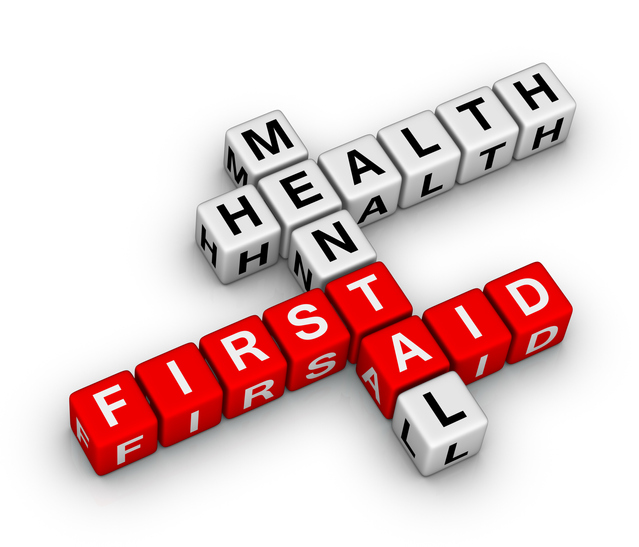The Holistic Approach to Wellbeing
In the pursuit of overall health, acknowledging the interconnectedness of mental and physical well-being is crucial. Mental health, often overlooked in traditional first aid training, plays a pivotal role in shaping our overall vitality. In this comprehensive guide, we explore the link between emotional and physical well-being, emphasizing the significance of first aid for mental health training in the Canadian context.
1. The Overlooked Connection: Mental Health and Physical Wellbeing
While physical health has long been a focal point of first aid training, the importance of mental health is gaining recognition. The symbiotic relationship between emotional and physical wellbeing highlights the need for a holistic approach to health and safety. Mental health first aid training emerges as a powerful tool to bridge this gap, fostering a more comprehensive understanding of the factors influencing overall wellbeing.
2. Defining Mental Health First Aid: Beyond the Physical Realm
Mental health first aid is a specialized training that equips individuals with the skills to provide initial support to those experiencing mental health challenges or crises. It goes beyond the traditional physical first aid approach, recognizing the nuanced nature of emotional distress and the impact it can have on an individual’s overall health.
3. Prevalence in Canadian Context: The Need for Mental Health First Aid Training
In the Canadian context, where diverse factors such as weather, lifestyle, and societal pressures contribute to mental health challenges, the need for mental health first aid training is pronounced. Understanding the unique stressors Canadians face enables individuals to respond empathetically and effectively, creating a supportive environment for emotional and physical healing.
4. Recognizing Mental Health Distress: The First Step in First Aid Training
The foundation of mental health first aid training lies in the ability to recognize signs of distress. From subtle changes in behaviour to more overt signs of emotional struggle, comprehensive training empowers individuals to identify when someone may be in need of support. This proactive approach fosters early intervention and prevents the escalation of mental health challenges.
5. Building Empathy and Understanding: Core Components of First Aid Training
Effective mental health first aid requires a foundation of empathy and understanding. Training programs emphasize the importance of active listening, non-judgmental communication, and the ability to create a safe space for individuals to express their emotions. These core components form the basis for offering support and initiating the healing process.
6. Risk Assessment and Crisis Intervention: Navigating Critical Moments
Mental health first aid training goes beyond recognition and extends to risk assessment and crisis intervention. Individuals are equipped to assess the level of risk a person may be facing and respond appropriately. Crisis intervention strategies become tools for stabilizing situations and ensuring individuals receive the professional help they need.
7. Breaking the Stigma: Mental Health First Aid as a Catalyst for Change
One of the prevailing barriers to seeking mental health support is the pervasive stigma surrounding emotional struggles. Mental health first aid training challenges this stigma by fostering open conversations, reducing misinformation, and promoting a culture of empathy and support. It becomes a catalyst for societal change, encouraging individuals to prioritize mental health just as they would physical health.
8. Self-Care and Resilience: Empowering Individuals in First Aid Training
Beyond aiding others, mental health first aid training places a significant emphasis on self-care and resilience. Participants learn strategies to maintain their own mental well-being, recognizing that a resilient individual is better equipped to provide support to others. This reciprocal approach enhances the overall health and resilience of communities.
9. The Role of Mental Health First Aid in Crisis Prevention
By addressing mental health challenges at an early stage, mental health first aid acts as a powerful tool in crisis prevention. Individuals who receive timely and appropriate support are less likely to experience crises that may lead to significant emotional and physical consequences. This proactive approach aligns with the overarching goal of first aid – to prevent harm and promote wellbeing.
10. Access to Resources: Bridging Gaps in Mental Health Support
Mental health first aid training provides individuals with valuable knowledge about available resources and support networks. By understanding the local mental health landscape, participants can guide individuals to appropriate professionals, services, and community resources. This bridging of gaps ensures that those in need can access the help they require.
A Holistic Vision of First Aid for Wellbeing
The integration of mental health first aid into traditional first aid training marks a paradigm shift towards a more holistic vision of wellbeing. In the Canadian context, where diverse factors influence mental health, this training becomes a catalyst for change. Recognizing the link between emotional and physical well-being, individuals equipped with mental health first aid training are empowered to foster supportive environments, break down stigmas, and proactively address the factors shaping the overall health of themselves and those around them. This transformative approach signifies not only a commitment to preventing harm but also an investment in cultivating resilient, empathetic communities.
